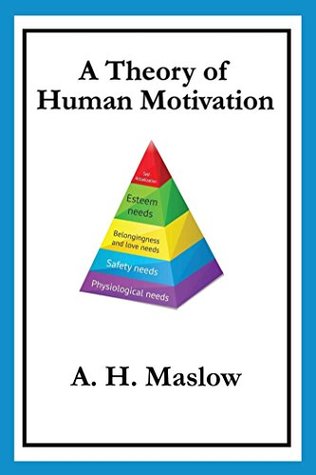More on this book
Community
Kindle Notes & Highlights
culture itself is an adaptive tool, one of whose main functions is to make the physiological emergencies come less and less often.
The tendency to have some religion or world-philosophy that organizes the universe and the men in it into some sort of satisfactorily coherent, meaningful whole is also in part motivated by safety-seeking.
Here too we may list science and philosophy in general as partially motivated by the safety needs
The neurosis in which the search for safety takes its dearest form is in the compulsive-obsessive neurosis. Compulsive-obsessives try frantically to order and stabilize the world so that no unmanageable, unexpected or unfamiliar dangers will ever appear (14); They hedge themselves about with all sorts of ceremonials, rules and formulas so that every possible contingency may be provided for and so that no new contingencies may appear.
have a need or desire for a stable, firmly based, (usually) high evaluation of themselves, for self-respect, or self-esteem, and for the esteem of others. By firmly based self-esteem, we mean that which is soundly based upon real capacity, achievement and respect from others. These needs may be classified into two subsidiary sets. These are, first, the desire for strength, for achievement, for adequacy, for confidence in the face of the world, and for independence and freedom.5 Secondly, we have what we may call the desire for reputation or prestige (defining it as respect or esteem from other
...more
Satisfaction of the self-esteem need leads to feelings of self-confidence, worth, strength, capability and adequacy of being useful and necessary in the world.
The need for self-actualization. — Even if all these needs are satisfied, we may still often (if not always) expect that a new discontent and restlessness will soon develop, unless the individual is doing what he is fitted for. A musician must make music, an artist must paint, a poet must write, if he is to be ultimately happy. What a man can be, he must be. This need we may call self-actualization.
It refers to the desire for self-fulfillment, namely, to the tendency for him to become actualized in what he is potentially. This tendency might be phrased as the desire to become more and more what one is, to become everything that one is capable of becoming.
There are some people in whom, for instance, self-esteem seems to be more important than love. This most common reversal in the hierarchy is usually due to the development of the notion that the person who is most likely to be loved is a strong or powerful person, one who inspires respect or fear, and who is self confident or aggressive. Therefore such people who lack love and seek it, may try hard to put on a front of aggressive, confident behavior. But essentially they seek high self-esteem and its behavior expressions more as a means-to-an-end than for its own sake; they seek self-assertion
...more
These people may be understood, at least in part, by reference to one basic concept (or hypothesis) which may be called ‘increased frustration-tolerance through early gratification’. People who have been satisfied in their basic needs throughout their lives, particularly in their earlier years, seem to develop exceptional power to withstand present or future thwarting of these needs simply because they have strong, healthy character structure as a result of basic satisfaction. They are the ‘strong’ people who can easily weather disagreement or opposition, who can swim against the stream of
...more
In respect to this phenomenon of increased frustration tolerance, it seems probable that the most important gratifications come in the first two years of life. That is to say, people who have been made secure and strong in the earliest years, tend to remain secure and strong thereafter in the face of whatever threatens.
A desire for an ice cream cone might actually be an indirect expression of a desire for love. If it is, then this desire for the ice cream cone becomes extremely important motivation. If however the ice cream is simply something to cool the mouth with, or a casual appetitive reaction, then the desire is relatively unimportant.
There are at least five sets of goals, which we may call basic needs. These are briefly physiological, safety, love, ‘esteem, and self-actualization. In addition, we are motivated by the desire to achieve or maintain the various conditions upon which these basic satisfactions rest and by certain more intellectual desires.
7For more extensive discussion of normal self-esteem, as well as for reports of various researches, see (11). 8Clearly


